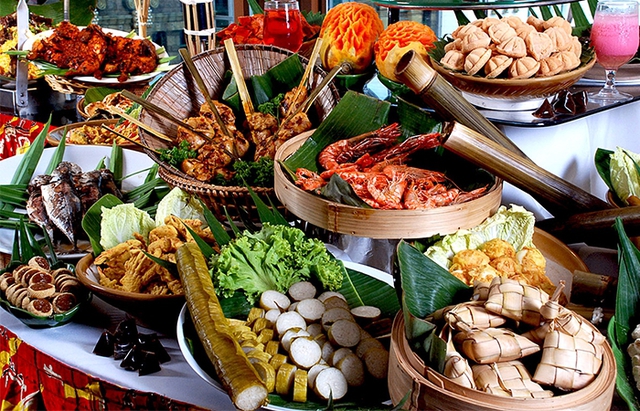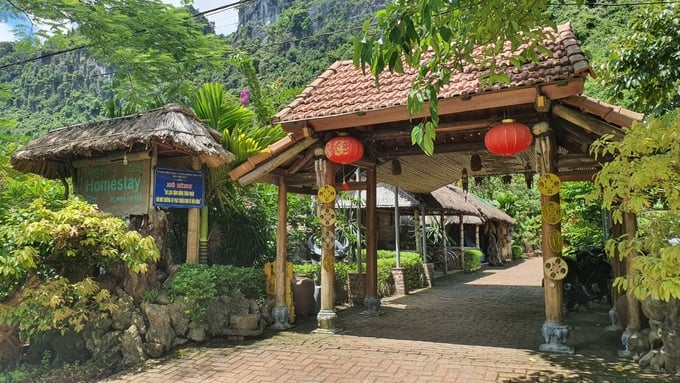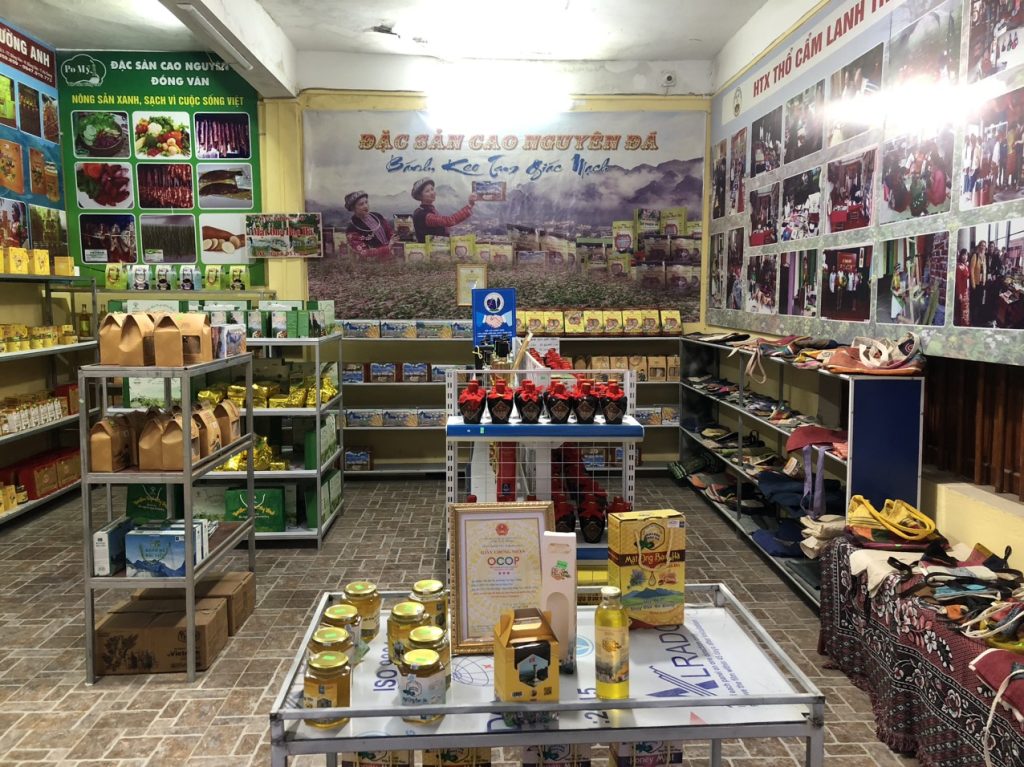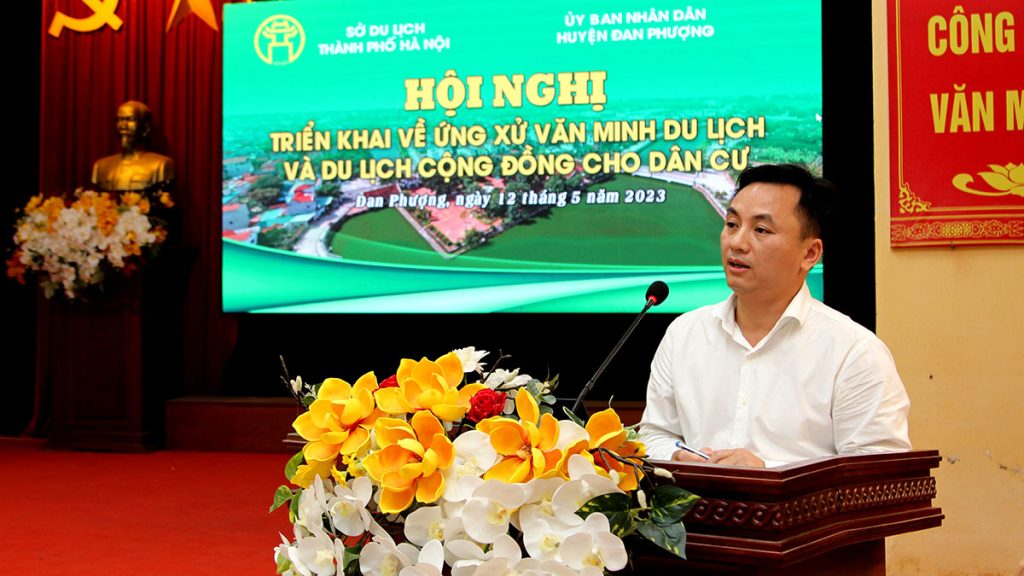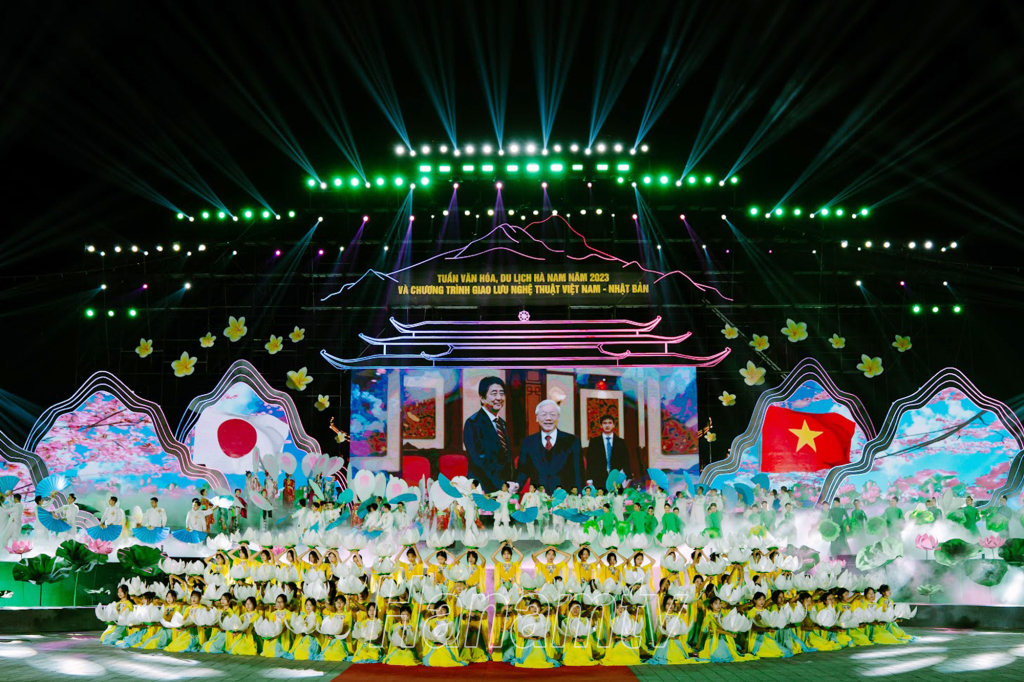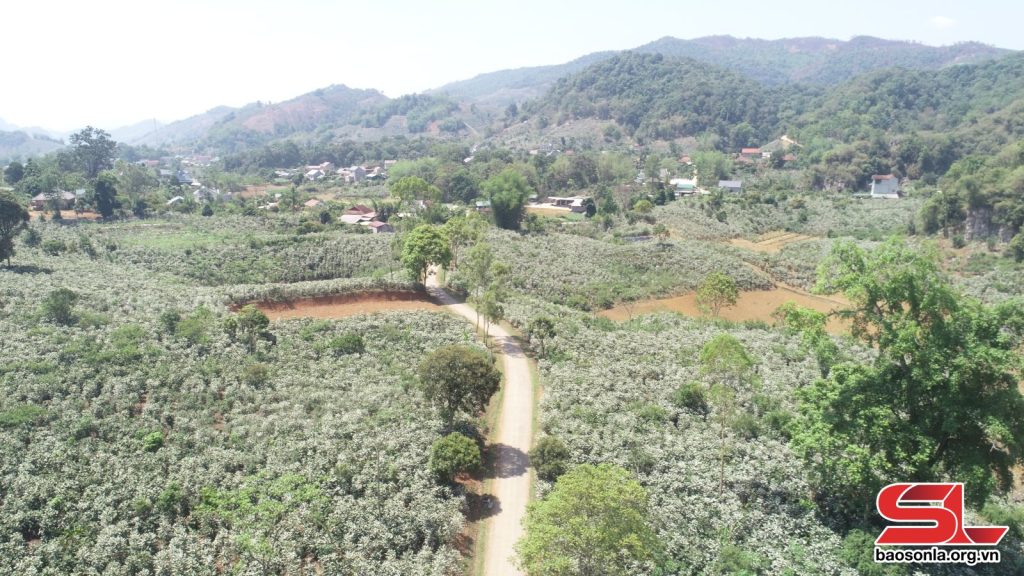(TITC) – On 14th September, in the framework of The 23rd International Agricultural Exhibition (AgroViet 2023), Workshop “Developing green, sustainable agriculture associated with the rural tourism model” took place.

Delegates chaired the Workshop (Photo: Organising Board)
Giving his opening remarks, Mr. Hoang Van Du – Deputy Director of the Agricultural Trade Promotion Center emphasised, sustainable, green, environmentally friendly agricultural production is the target that Vietnam and all countries in the world have been aiming for. On 1st November 2021, the Prime Minister committed at the COP26 Conference to reduce greenhouse gas emissions to “zero” by 2050. At the same time, Decision No. 150/QD-TTg dated 28 January 2022 of the Prime Minister also clearly affirms the goal of developing green, ecological and environmentally friendly agriculture. Along with that, the entire agricultural industry is shifting from agricultural production thinking to agricultural economic thinking on the basis of integrating multi-values, including culture and environmental resources.
Therefore, developing ecological agriculture combined with rural tourism is considered a sustainable development trend in the current period to realise the commitments of the Vietnamese Government to the world community as well as contribute to the direction of a sustainable and effective agricultural development. This model will exploit available local resources, create more jobs, increase income and life for local people, protect the ecological environment in rural areas, and help maintain and promote cultural identity and rural life of ethnic groups and regions, thereby contributing to attracting investment in local and community economic development.
The workshop was organised to affirm the role, the importance of modern, sustainable and environmentally friendly agricultural development; Introduce and promote a number of ecological agricultural production and circular economy models associated with the current rural tourism model; exchange and discuss about solutions to build ecological agricultural production models and circular economy associated with rural tourism to attract and develop the community economy, promote local economic development, and respond to climate change.

At the workshop, Mr. Nguyen Anh
Phong – Deputy Director of the Institute of Policy and Strategy for Agriculture
and Rural Development assessed the opportunities and challenges in developing
rural agricultural tourism in a multi-value, inclusive and sustainable
direction. Thereby, Mr. Nguyen Anh Phong said, in a context where sustainable
tourism is becoming increasingly necessary, tourism development combined with
clean agriculture not only creates new business opportunities but also
contributes to enhancing sustainable development for localities. Developing
community tourism associated with new rural development is the appropriate
direction to exploit the potential and strengths of each locality, promoting
the development of household livelihoods in particular and the economy of the
community in general. Thereby, contributing to improving the material and
spiritual life of the people.
According to experts at the
workshop, to develop sustainable tourism associated with agriculture, Vietnam
needs to face and resolve challenges including: lack of proficiency in
sustainable agricultural technology and processes, making it difficult to develop
quality agritourism products; lack of capacity and knowledge on distributing
and marketing agricultural tourism products, leading to ineffective market
access and potential exploitation; lack of investment in agritourism
infrastructure, such as facilities, transportation, telecommunications and
other support services, affects the development of the industry…
Therefore, delegates recommended
that Vietnam needs to develop a strategy and plan for sustainable tourism
development associated with agricultural tourism, while creating favourable
conditions to solve these problems and exploit future potential of the industry.
To link community tourism
development with the new rural construction programme, it is necessary to carry
out rural tourism development planning in sync with the new rural construction
planning. Rural tourism development needs to be associated with regional
ecological characteristics, focusing on preserving cultural and historical
values. Rural tourism development aims to exploit creativity, cultural
differences, and ecological landscapes to create new products suitable for the
market.
Particularly, it is necessary to
focus on exploiting the tourism value chain based on linkages with related
industries, occupations and services to provide a variety of experiences,
attract, increase spending and extend the duration of stay of tourists… At the
same time, develop ancillary services to support tourism, linking rural tourism
infrastructure development with climate change response and environmental
protection; focus on improving the quality of rural tourism human resources.
Community tourism associated with
new rural construction is expected to bring Vietnam’s tourism industry a new
vitality post the Covid-19 pandemic. Therefore, it is necessary to
comprehensively review and re-evaluate the potential and current status of community
tourism development from typical agricultural areas providing tourism services
and propose management solutions and support development in the future. There
are appropriate policy mechanisms to attract businesses to invest in
agriculture and rural infrastructure development to create conditions for local
people to exploit the advantages of tourism development.
Tourism
Information Technology Center

